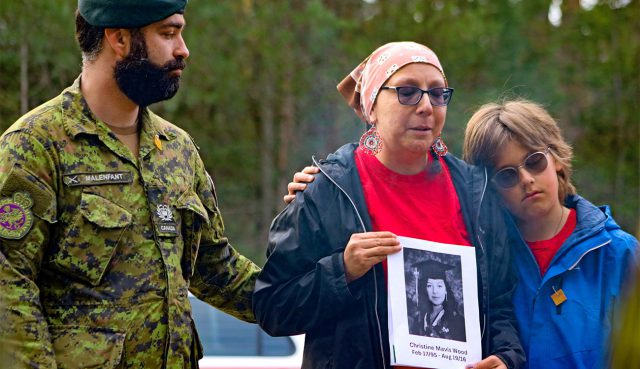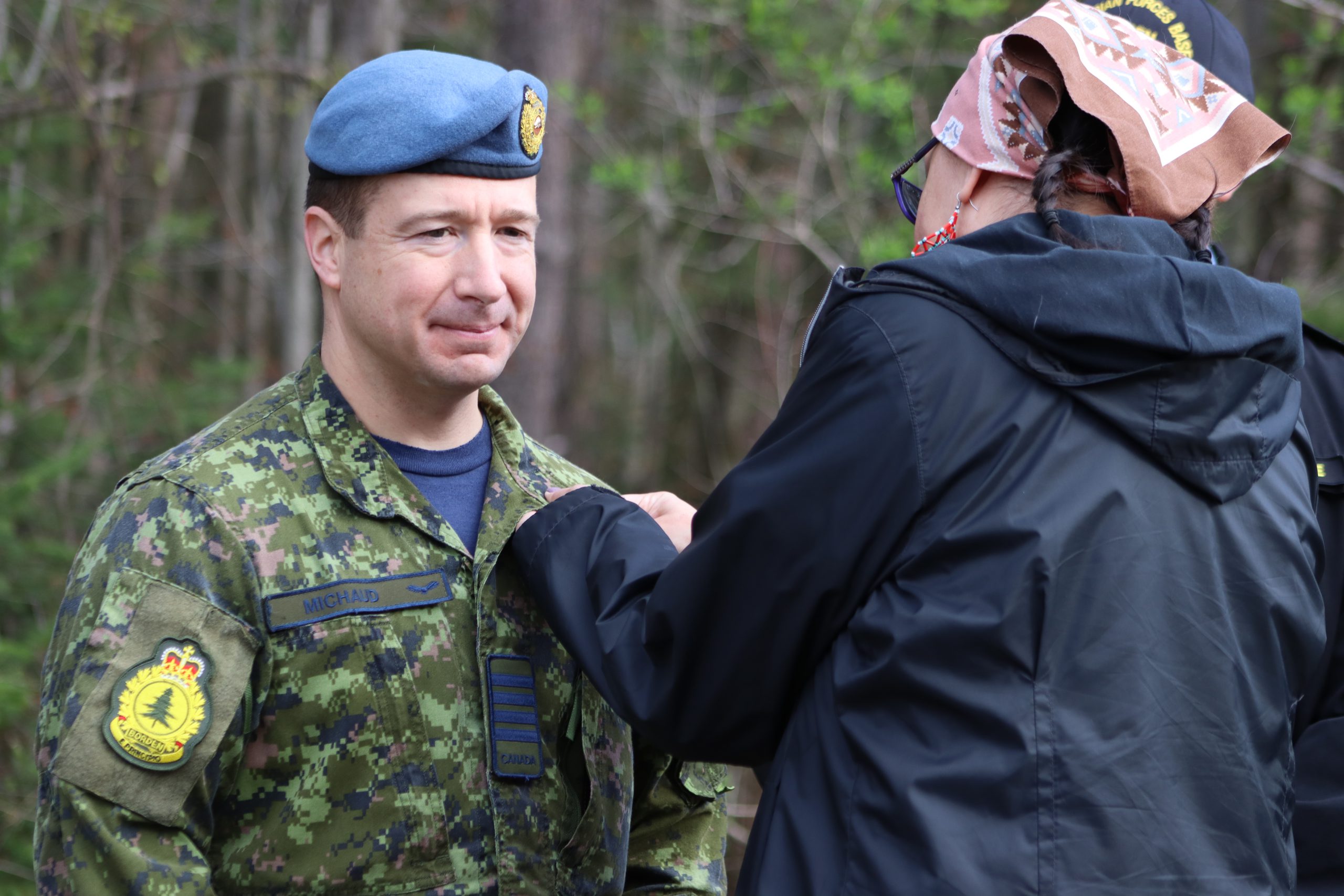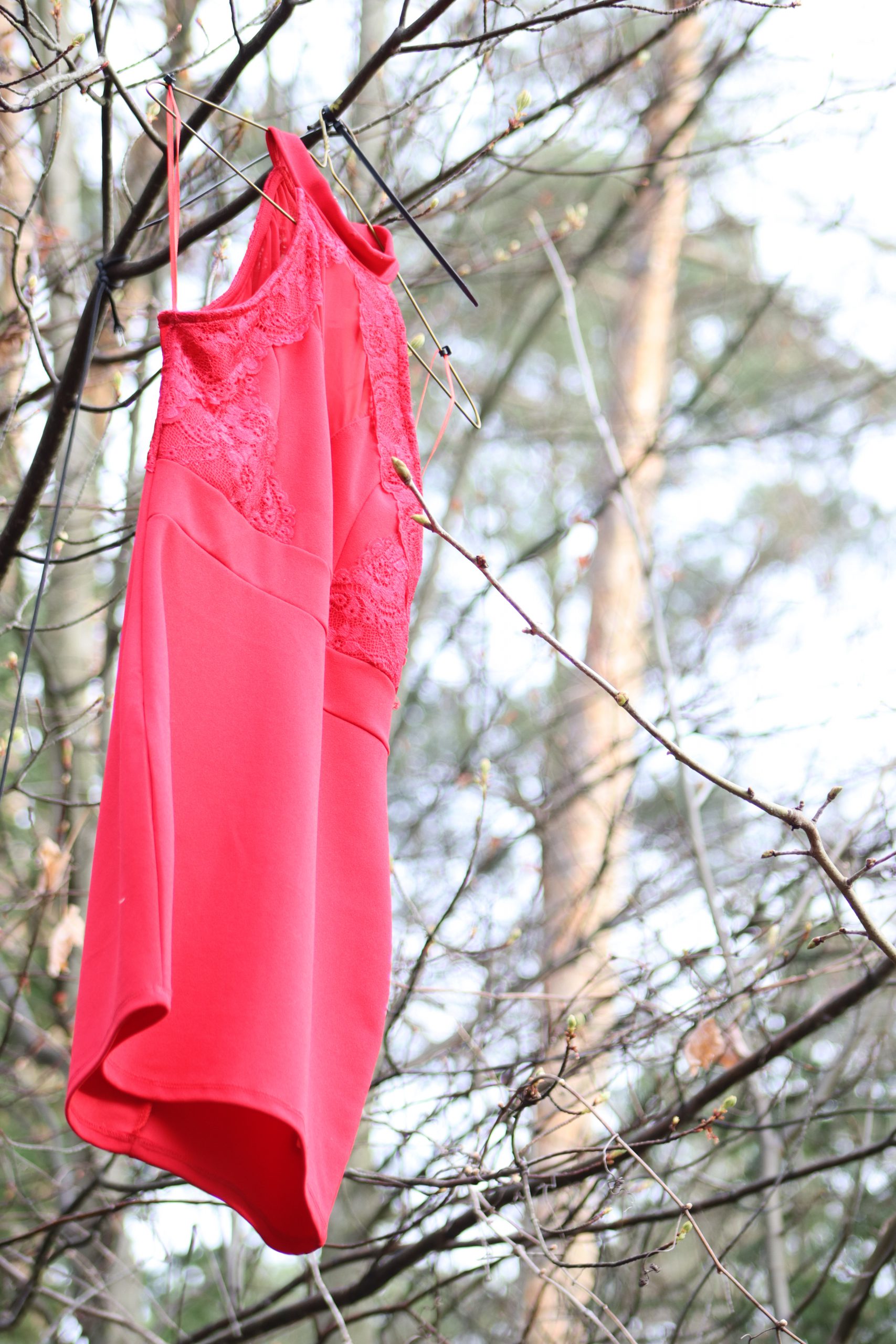
On 5 May, Borden resident Jolene Wood remembered her cousin, who went missing in August 2016.
Christine Wood was 21 years old when she disappeared. While visiting family in Winnipeg, she went out one night never to return. The next ten months would be a painful journey as the family searched for their missing loved one, hoping she would come home. But today, six years after her body was found, that pain continues.
Christine is only one of thousands of missing and murdered Indigenous women, girls, and two-spirit people in Canada, where Indigenous women comprise less than 5 per cent of the population yet 24 per cent of female homicide victims. These victims are remembered on 5 May, known as Red Dress Day.
“It’s a really, really hard day,” Jolene Wood said tearfully, with her husband and her son at her side. Throughout the ceremony, she held a photo of Christine over her heart. “She never got to be a mom. She never got to go to school. She is missed by so many. My aunt and uncle, they struggle every day.”
Flag raising at Borden

Two red dresses hung from the trees on either side of the flagpole at CFB Borden’s north gate during the ceremony as a symbol of Missing and Murdered Indigenous Women and Girls and Two-Spirit People (MMIWG2S).
The ceremony began with a smudging and the raising of the MMIWG2S flag, followed by remarks from Ranger Dave Walker and Col Jonathan Michaud, Commander of CFB Borden and Military Personnel Generation Training Group (MPGTG).
“While we offer our support through thoughts and prayers today, unless they are backed up by meaningful action, those are empty words and thoughts,” Cpl Noemie Chartrand said. “We hope for and aspire to humility, that Canadians may have the humility to open their hearts to hear stories from this country that are not necessarily celebratory.”
Those in attendance were also given a pin with a small piece of moose hide to wear on their lapels from 8-12 May. The Moose Hide Campaign originated as a grassroots movement out of British Columbia of men who are standing up against violence towards women and children.
Why Red Dresses?

Red dresses were displayed hanging from trees across the military base into the week following the ceremony, each one representing a missing or murdered person.
The concept stems from the 2010 REDress Project exhibit by Métis artist Jaime Black. Red is a colour that represents violence and vitality. According to some Indigenous belief, it is also the only colour that can be seen by spirits.
“As you walk through CFB Borden today and over the next few days and we all see the red dresses displayed and the members wearing the moose hide on their uniform, I want to encourage everyone to continue walking on this journey together,” said Col Michaud. “To address systemic inequities and racism, we must continue to reach out to one another and work together to make our community the best it can be.”
“I never thought I would see days like this where I would see more events happening that honour indigenous women, girls, two spirit,” Jolene Wood said. “It’s steps like this that help us into reconciliation.”
By: Emily Nakeff, Editor











